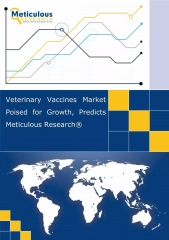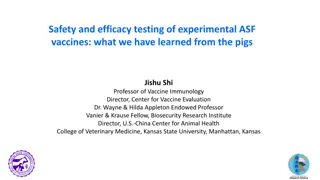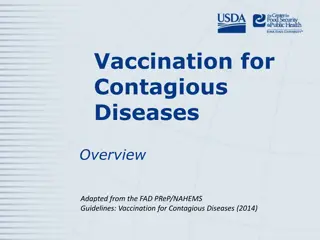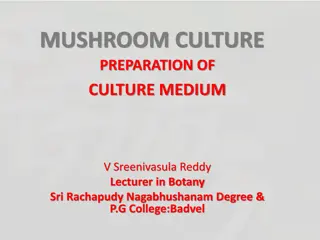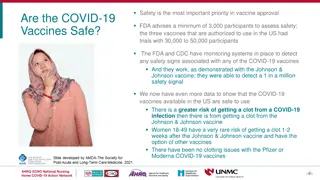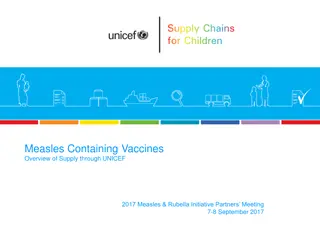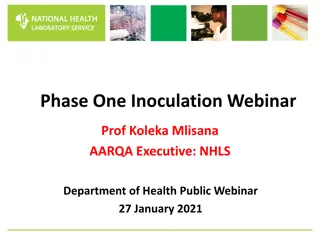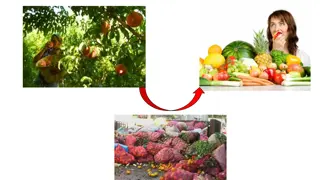Exploring Edible Vaccines: Advantages, Limitations, and Significance
Edible vaccines, a novel approach in vaccine technology, offer numerous advantages such as easy administration, cost-effectiveness, and enhanced immunity. However, they also present challenges like dosage consistency, stability issues, and potential side effects. The significance of edible vaccines lies in their potential to revolutionize immunization practices. Understanding both the advantages and limitations is crucial in harnessing this innovative vaccination method effectively.
Download Presentation

Please find below an Image/Link to download the presentation.
The content on the website is provided AS IS for your information and personal use only. It may not be sold, licensed, or shared on other websites without obtaining consent from the author. Download presentation by click this link. If you encounter any issues during the download, it is possible that the publisher has removed the file from their server.
E N D
Presentation Transcript
Vaccine Vaccine is a biological preparation intended to produce immunity to a disease by stimulating the production of antibodies and thus combating the disease. Dead or attenuated organisms or purified products derived from them are generally used to produce various vaccines.
Edible Vaccine An edible vaccine is a food, typically plants, that produce vitamins, proteins or other nourishment that act as a vaccine against a certain disease. Once the plant, fruit, or plant derived product is ingested orally, it stimulates the immune system.
Advantages of Edible Vaccines No need of medical personnel and syringes. Sterile injection conditions are no more required. Economical in mass production by breeding compared to an animal system. Easy for administration and transportation. Effective maintenance of vaccine activity by controlling the temperature in plant cultivation. Therapeutic proteins are free of pathogens and toxins. Storage near the site of use. Heat stable, thus eliminating the need of refrigeration. Generation of systemic and mucosal immunity. Enhanced compliance (especially in children). Delivery of multiple antigens. Integration with other vaccine approaches. Plant-derived antigens assemble spontaneously into oligomers and into virus like particles. No serious side effect problems have been noticed until now.
Limitations and Challenges With advancement come many hurdles and problems, so is true for edible vaccines. Like, one could develop immunotolerance to the vaccine peptide or protein, though a little research has been done on it. One of the key goals of the edible-vaccine pioneers was to reduce immunization costs but later many limitations were reported as given below: Consistency of dosage from fruit to fruit, plant to plant, lot to lot, and generation to generation is not similar. Stability of vaccine in fruit is not known. Evaluation of dosage requirement is tedious. Selection of best plant is difficult. There is always possibility of side effects due to the interaction between the vaccine and the vehicle. People could ingest too much of the vaccine, which could be toxic, or too little, which could lead to disease outbreaks among populations believed to be immune. Potential risk of spreading the disease by edible vaccine delivery is a concern of many. Potential contamination of the oral delivery system is a possible danger.



